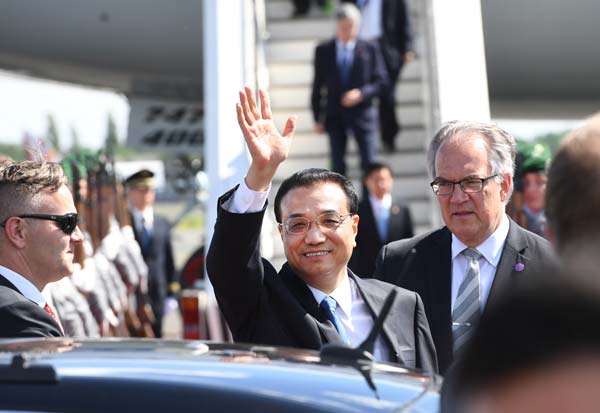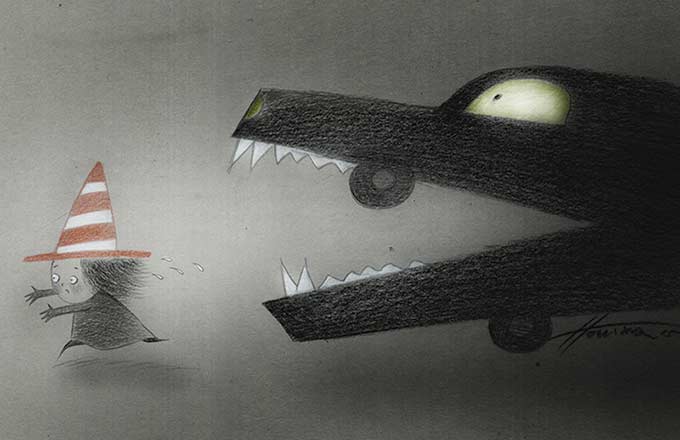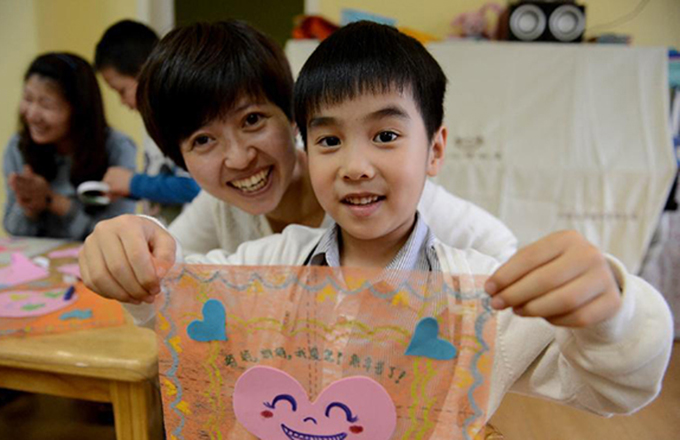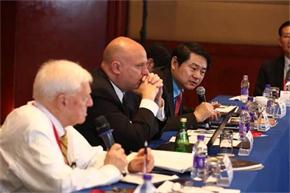Li's visit raises hopes of stronger Sino-EU ties
 |
|
Chinese premier Li Keqiang arrives in Berlin for his official visit to Germany May 31st, 2017. [Photo/Xinhua] |
Premier Li Keqiang began his four-day visit to Germany and Belgium on Wednesday, during which he is scheduled to attend the annual meeting with German chancellor and the 19th China-EU leaders' meeting.
Whether Beijing and Brussels can shelve their differences and what the latter can do with its "normative power" to strengthen Sino-EU ties will be closely watched during Li's visit.
How the EU member states can get better involved in the Belt and Road Initiative (the Silk Road Economic Belt and the 21st Century Maritime Silk Road), too, is high on the agenda of the China-EU meeting.
Brussels' concerns over Beijing's proposals on China-EU cooperation on the Belt and Road Initiative are uncalled for. As President Xi Jinping emphasized in his opening speech at the Beijing forum, the implementation of the Belt and Road Initiative, which draws inspiration from the ancient Silk Road, is open to all economies and its focus is on the Eurasian and African markets. It also encourages extensive consultation, joint contribution and shared benefits, leaving enough room and incentives for the EU's participation even though its demand for infrastructure is limited.
Li's visit comes at a time when the post-Brexit EU has been struggling to move toward greater integration. The fear that the departure of the United Kingdom from the EU could prompt other countries to pull out of the bloc has cast a shadow over European unity, with the leadership changes in some EU member states signaling more uncertainty.
Since Beijing and Brussels established a comprehensive strategic partnership in 2003, China has become the EU's second-largest trade partner and the largest source of imports, and the EU the largest trade partner of China. That Beijing welcomes a more unified, stable, and prosperous EU, to some extent, may help the bloc tide over the crisis. China highly values the strategic significance of the EU and intends to keep strengthening their partnership in maintaining global peace and economic growth, and boosting reform.
At his meeting with EU leaders, Li is expected to reiterate China's commitment to promoting a multipolar world order and optimizing global governance with the help of the EU, and discuss ways of upgrading China-EU trade ties.
Last year, China-EU trade declined 3.1 percent because of fluctuations in the global market and the depreciation of the euro, but the EU's investment in China increased, adding fresh impetus to the two sides' endorsement of free trade and fairer economic governance. It is hoped that in the days to come leaders from both sides will expedite negotiations for a two-way investment treaty and to reduce anti-dumping disputes.
The author is a distinguished professor at Shanghai University.


















